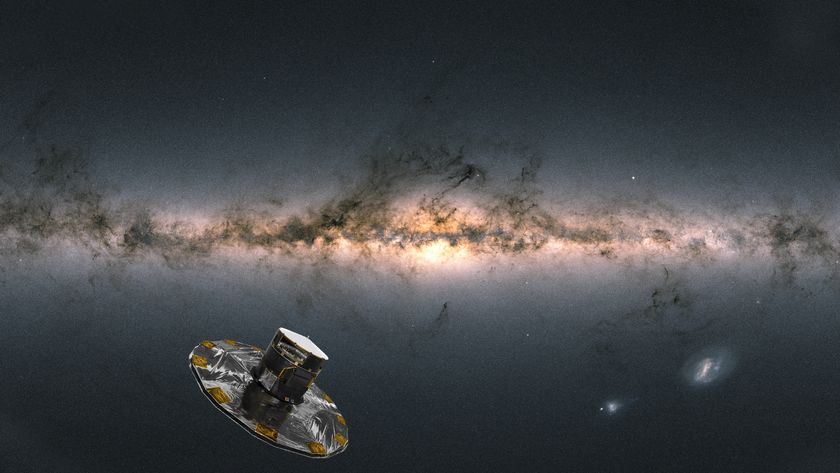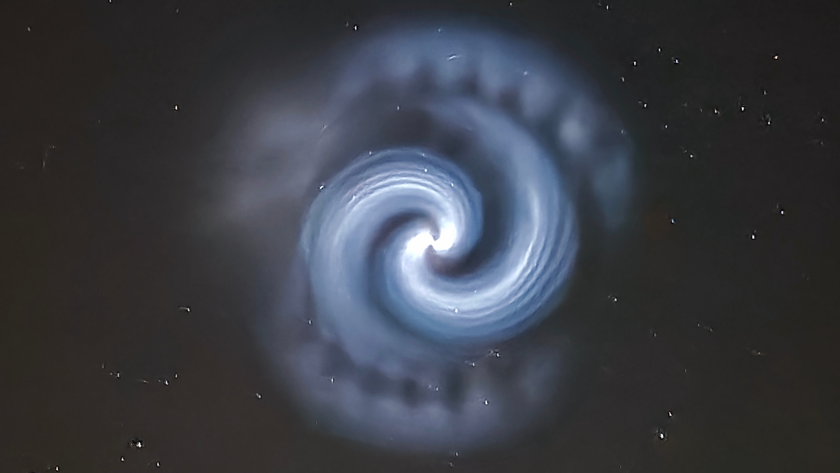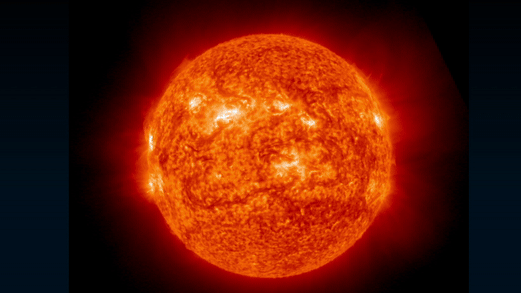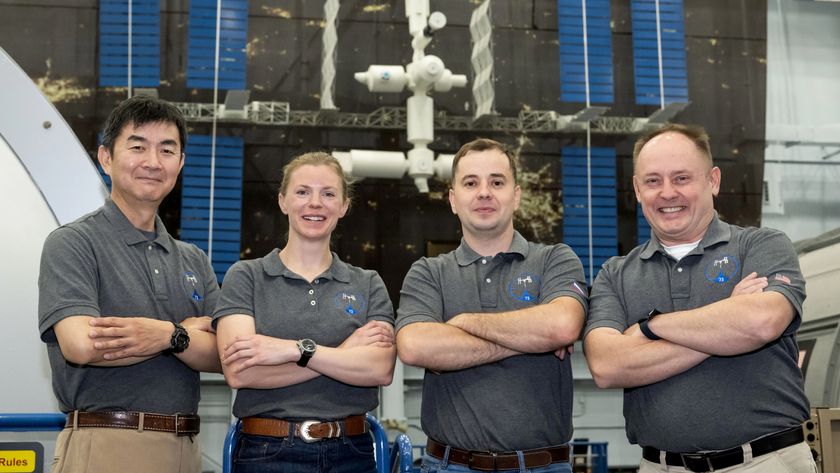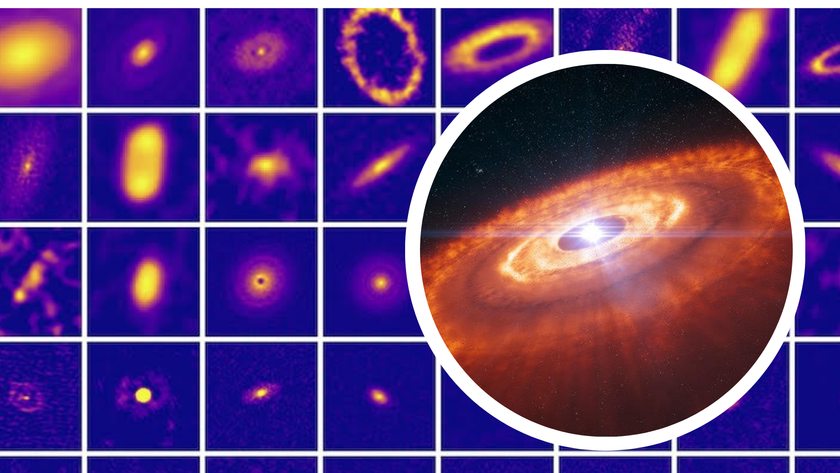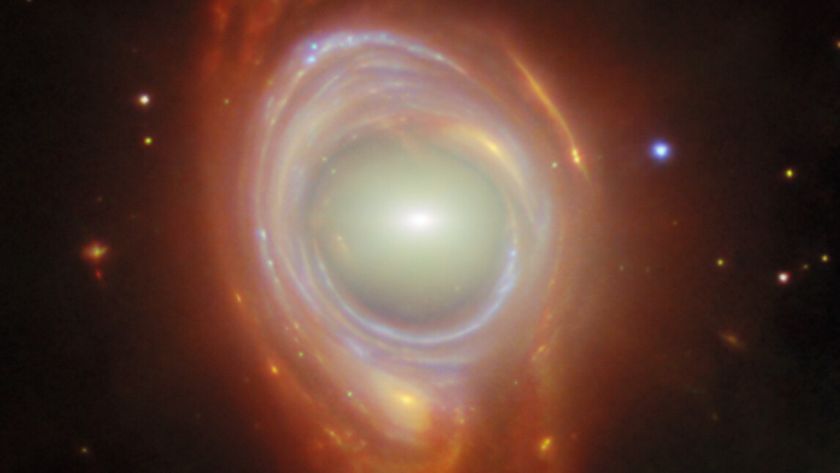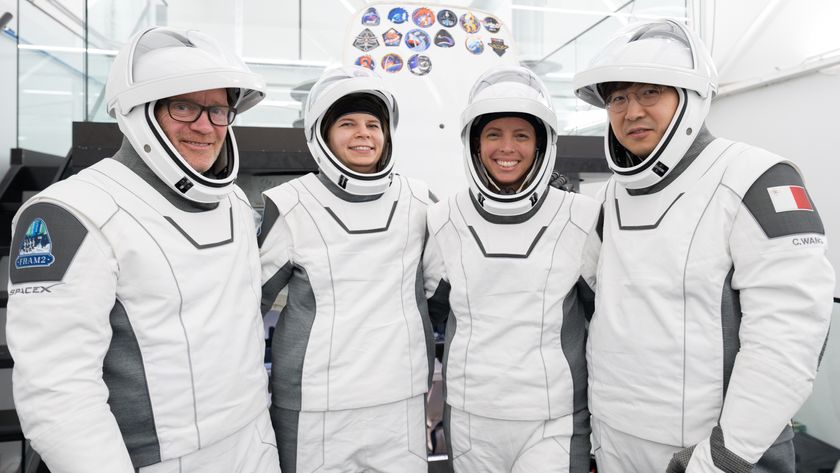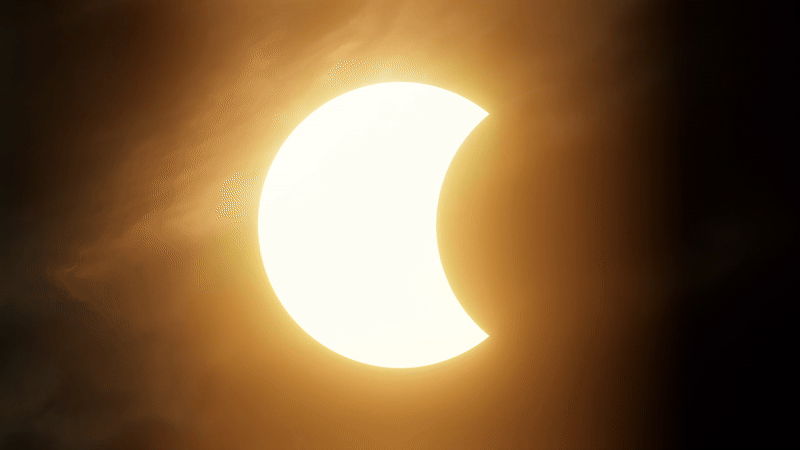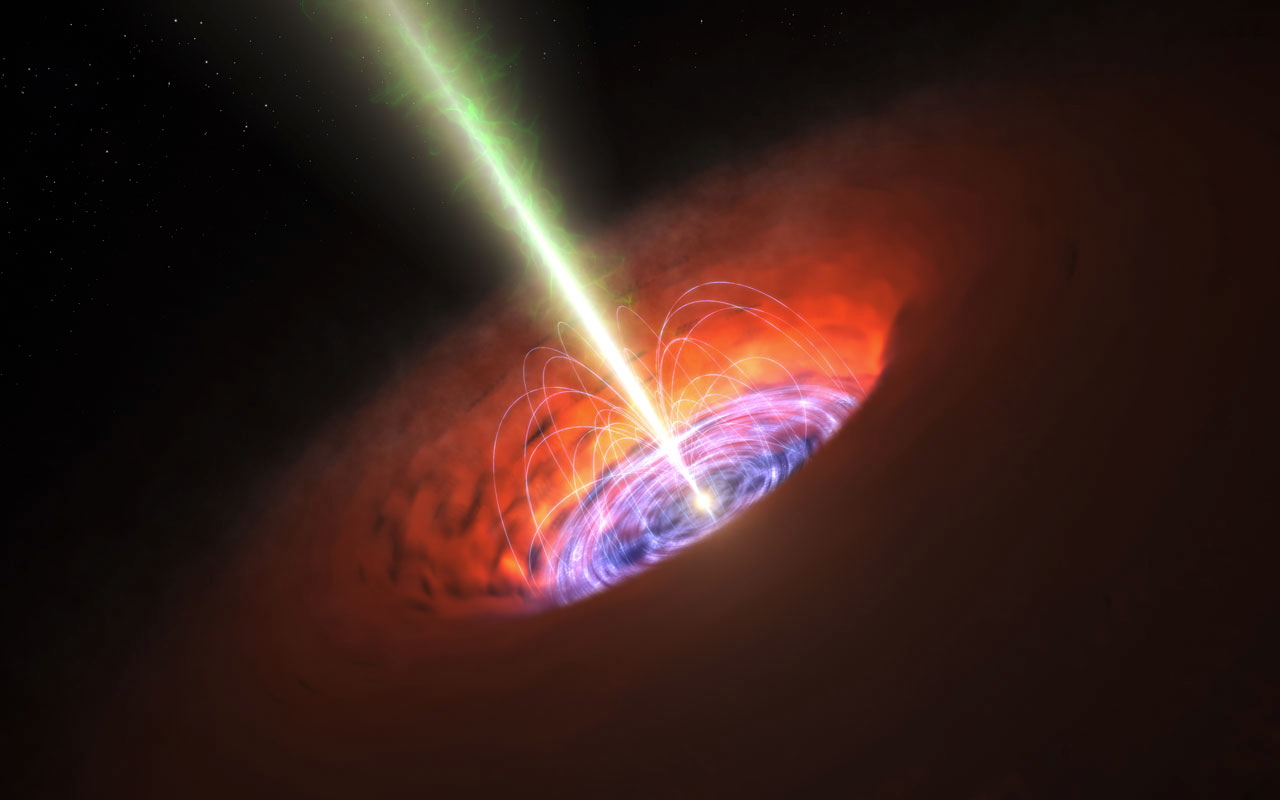
Stephen Hawking may have just solved one of the most vexing mysteries in physics — the "information paradox."
Einstein's theory of general relativity predicts that the physical information about material gobbled up by a black hole is destroyed, but the laws of quantum mechanics stipulate that information is eternal. Therein lies the paradox.
Hawking — working with Malcolm Perry, of the University of Cambridge in England, and Harvard University's Andrew Stromberg — has come up with a possible solution: The quantum-mechanical information about infalling particles doesn't actually make it inside the black hole.
"I propose that the information is stored not in the interior of the black hole, as one might expect, but on its boundary, the event horizon," Stephen Hawking said during a talk today (Aug. 25) at the Hawking Radiation conference, which is being held at the KTH Royal Institute of Technology in Stockholm, Sweden.
The information is stored at the boundary as two-dimensional holograms known as "super translations," he explained. But you wouldn't want super translations, which were first introduced as a concept in 1962, to back up your hard drive.
"The information about ingoing particles is returned, but in a chaotic and useless form," Hawking said. "For all practical purposes, the information is lost."
Hawking also discussed black holes — whose gravitational pull is so intense that nothing, not even light, can escape once it passes the event horizon — during a lecture last night (Aug. 24) in Stockholm.
Get the Space.com Newsletter
Breaking space news, the latest updates on rocket launches, skywatching events and more!
It's possible that black holes could actually be portals to other universes, he said.
"The hole would need to be large, and if it was rotating, it might have a passage to another universe. But you couldn't come back to our universe," Hawking said at the lecture, according to a KTH Royal Institute of Technology statement. "So, although I'm keen on spaceflight, I'm not going to try that."
Follow Mike Wall on Twitter @michaeldwall and Google+. Follow us @Spacedotcom, Facebook or Google+. Originally published on Space.com.
Join our Space Forums to keep talking space on the latest missions, night sky and more! And if you have a news tip, correction or comment, let us know at: community@space.com.

Michael Wall is a Senior Space Writer with Space.com and joined the team in 2010. He primarily covers exoplanets, spaceflight and military space, but has been known to dabble in the space art beat. His book about the search for alien life, "Out There," was published on Nov. 13, 2018. Before becoming a science writer, Michael worked as a herpetologist and wildlife biologist. He has a Ph.D. in evolutionary biology from the University of Sydney, Australia, a bachelor's degree from the University of Arizona, and a graduate certificate in science writing from the University of California, Santa Cruz. To find out what his latest project is, you can follow Michael on Twitter.
